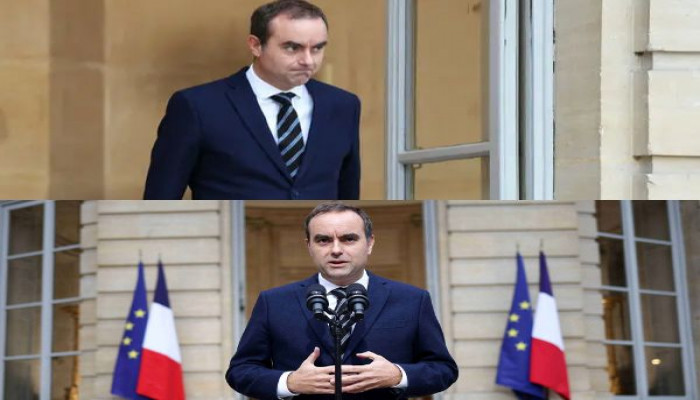French Prime Minister Sebastien Lecornu resigns after Cabinet row deepens political turmoil
- In Reports
- 05:48 PM, Oct 06, 2025
- Myind Staff
French Prime Minister Sebastien Lecornu, appointed by President Emmanuel Macron less than a month ago, resigned on Monday, just a day after unveiling a new cabinet that sparked outrage and pushed the European Union into deeper political uncertainty. His exit makes him the fifth French Prime Minister to step down in the past two years.
Lecornu, 39, a trusted ally of Macron, handed in his resignation on Monday morning, according to the Elysee Palace. The move came after right-wing allies threatened to withdraw their support when he announced a cabinet packed with familiar names, including his predecessor Francois Bayrou.
With his resignation, Lecornu broke three records, becoming the shortest-serving Prime Minister with only 27 days in office, spending the longest time without a functioning government for 26 days, and being the only premier who never gave a general policy speech, according to AFP.
When Macron appointed him during France’s deepening debt crisis, Lecornu had promised a "rupture" from previous governments and vowed to bring in new faces, The Financial Times reported. But instead, he brought back many of Macron’s and Bayrou’s loyalists, angering his right-wing partners.
Far-right leader Marine Le Pen called Lecornu’s cabinet "pathetic". Jordan Bardella, the 30-year-old National Rally chief, also ridiculed the government and repeated his warning of a no-confidence vote.
"We made it clear to the Prime Minister: It's either a break with the past or a vote of no confidence," he said on X.
Bardella added that the new cabinet was "decidedly all about continuity and absolutely nothing about breaking with the past that the French people were expecting".
Even before the crisis erupted, Lecornu’s government was a minority and constantly at risk of collapse due to a fragmented parliament. The left-wing opposition had already been preparing a no-confidence motion, while Marine Le Pen’s National Rally kept pushing for early elections.
His predecessors, Bayrou and Barnier, were also forced out after failed efforts to control France’s widening budget deficit, the largest in the eurozone, as global investors and rating agencies kept a close watch.
Lecornu, once a rising conservative star who supported Macron’s 2017 presidential bid, had become the fourth prime minister in just a year, replacing Bayrou after his government lost a confidence vote over the contentious 2026 budget.
Bayrou’s removal came less than a year after taking office, following Barnier’s exit. His failure exposed France’s growing financial stress, with the deficit touching 5.8 per cent of GDP last year, almost double the EU limit of 3 per cent, and public debt soaring past 3.3 trillion euros, about 114 per cent of GDP.
By choosing Lecornu, Macron had signalled that he would stay committed to his pro-business and reform-driven agenda, even while leading a minority government.
Lecornu had earlier served as France’s youngest defence minister and led an ambitious military expansion plan through 2030, driven by the war in Ukraine. A strong Macron loyalist, he joined the president’s centrist movement in 2017 and held key roles in local administrations and overseas territories.
He had also played a major role in Macron’s "great debate" during the Yellow Vest protests, helping turn public anger into dialogue.
In an effort to win over the Socialists, Lecornu proposed a wealth tax, a long-standing demand of the left, and assured that he would not use special powers to pass the budget without a parliamentary vote. But the Socialists dismissed his efforts as insufficient, The Guardian reported.
"Without a change in policy, the Socialists will vote against the government," Socialist party secretary general Pierre Jouvet told BFM TV.







Comments